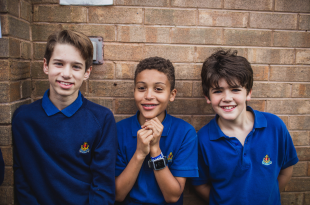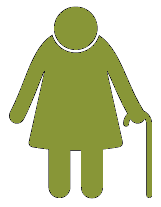
On the 19th October we published the findings from the evaluation of the two Uniformed Youth Social Action Funds (UYSAF), commissioned by the Cabinet Office and now part of the Department for Culture, Media and Sport under the Civil Society Agenda.
The UYSAF forms a part of the Government’s commitment to provide more opportunities for young people to take part in meaningful social action. The youth policy team worked closely with the Youth United foundation to ensure the UYSAF programmes were rolled out effectively and since the fund was created in 2014 over 27,000 more places in uniformed youth groups across the UK have been created - well exceeding the target of 15,000!
What do we mean by Uniformed Youth groups?
A Uniformed Youth Group is a youth organisation that has a long-term programme that brings young members together through a shared uniform. This includes the Scout association, Volunteer police Cadets and Girl guides– just to name a few!
The UYSAF consisted of 2 separately evaluated funds:
- Fund 1 evaluation represents one of the first attempts to quantify the short term impacts of youth social action on beneficiaries directly through post-activity surveys.
- Fund 2 evaluation aimed to understand how youth groups adapt their offer to engage with young people from ‘hard to reach’ groups and understand their motivations and barriers to participation through focus groups and face-to-face interviews.
So what are the main findings?
Fund 1:
 The double benefit –there was a positive impact on both those who took part and those who were recipients, with the majority of beneficiaries being positive about the impact of the youth social action. They generally had a more positive impression of what young people contribute and 80% reported feeling more proud of their local area.
The double benefit –there was a positive impact on both those who took part and those who were recipients, with the majority of beneficiaries being positive about the impact of the youth social action. They generally had a more positive impression of what young people contribute and 80% reported feeling more proud of their local area.
 Intergenerational relationships – findings suggest that social action can help beneficiaries meet new people, with 90% speaking to a young participant. Those who did were also more likely to report the social action as very worthwhile.
Intergenerational relationships – findings suggest that social action can help beneficiaries meet new people, with 90% speaking to a young participant. Those who did were also more likely to report the social action as very worthwhile.
 Engagement – the evaluation also demonstrated that even those who were not actively engaged in their communities experienced positive benefits of youth social action.
Engagement – the evaluation also demonstrated that even those who were not actively engaged in their communities experienced positive benefits of youth social action.
Fund 2:
 Inclusion and engagement– case studies highlighted that membership to Uniformed Youth groups can be accessible and appealing to a broad group of young people, and it was not difficult to get hard-to-reach young people engaged.
Inclusion and engagement– case studies highlighted that membership to Uniformed Youth groups can be accessible and appealing to a broad group of young people, and it was not difficult to get hard-to-reach young people engaged.
 Schools – There were a number of advantages to working through schools, including good access to the children and buildings fit for purpose.
Schools – There were a number of advantages to working through schools, including good access to the children and buildings fit for purpose.
However – there were a number of challenges for working with schools, including agreeing initial sign up, legal requirements and school timetables.
Recent Comments